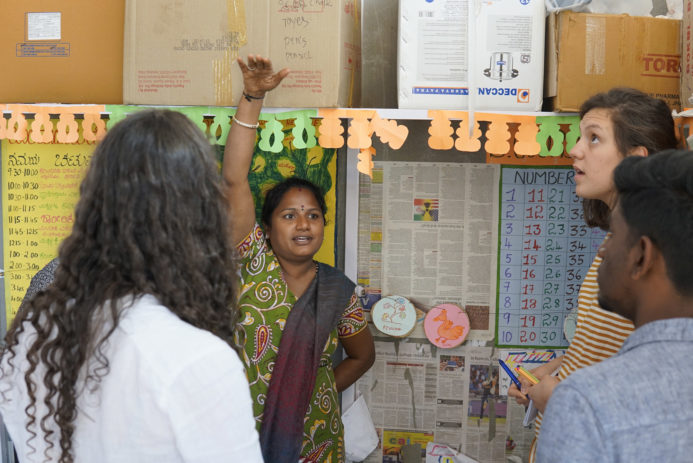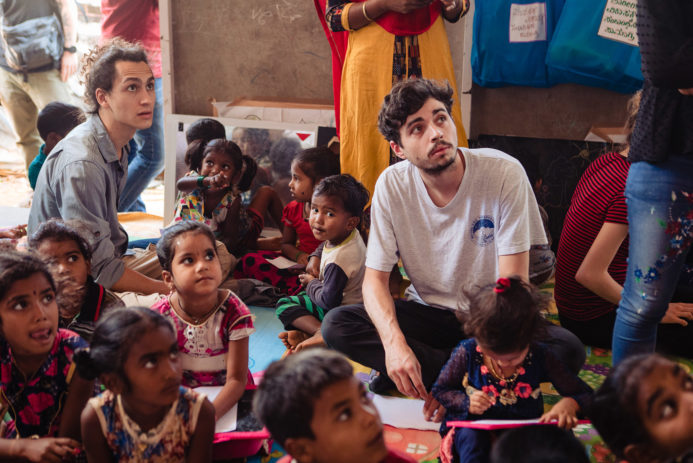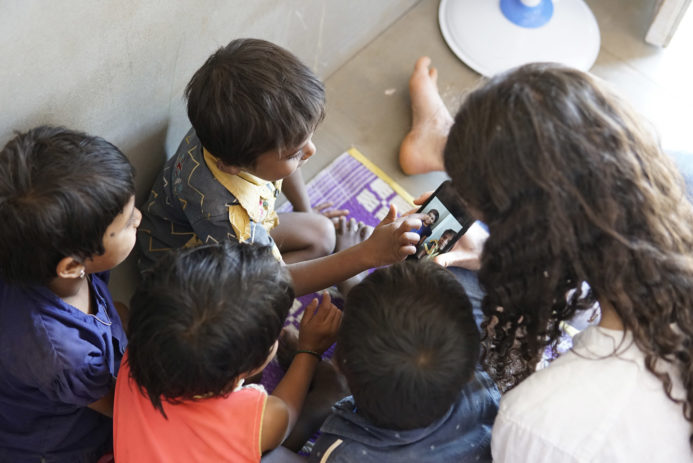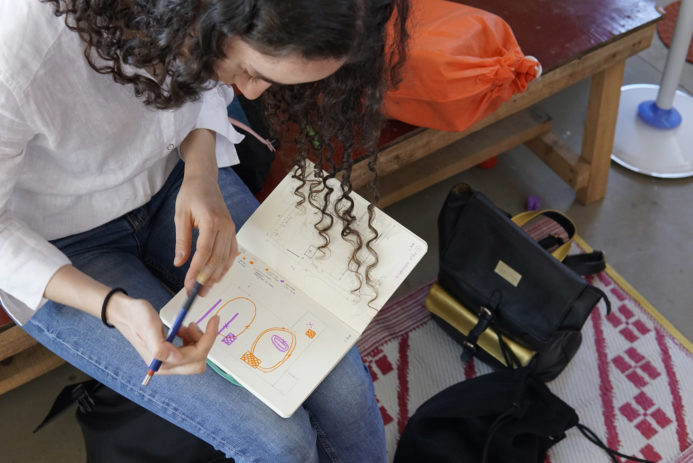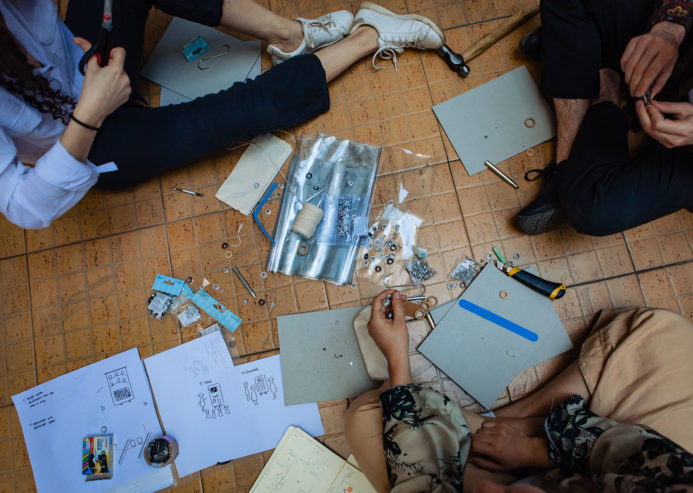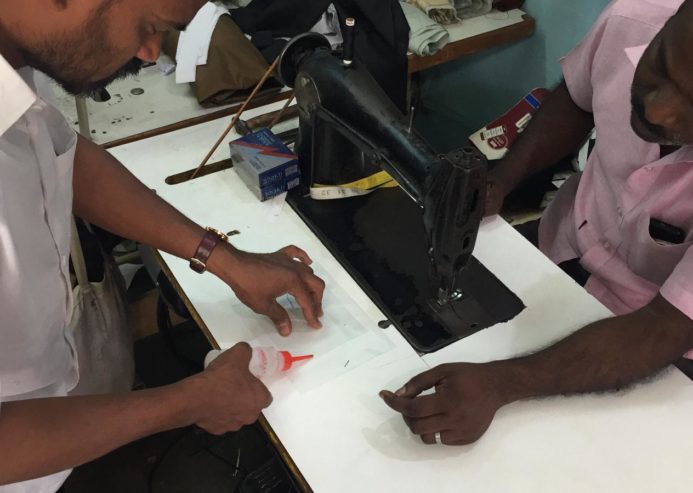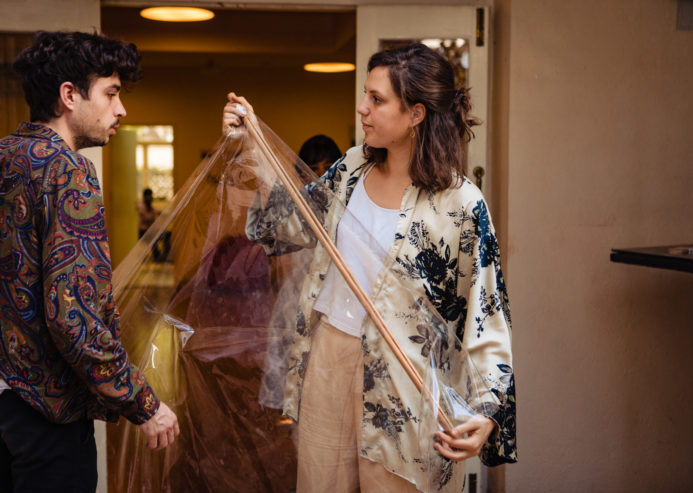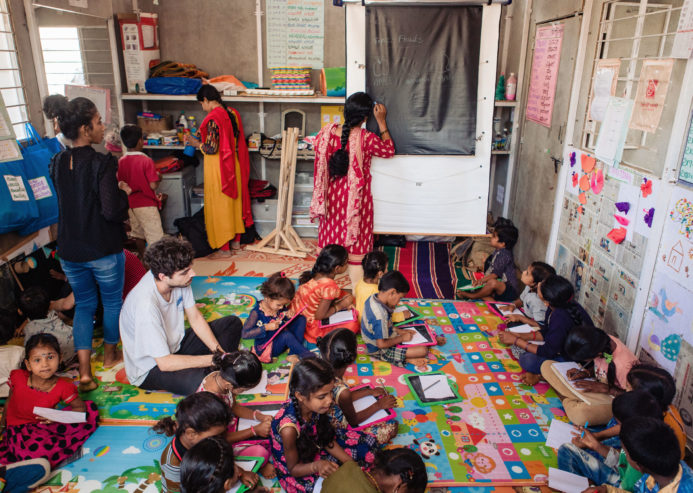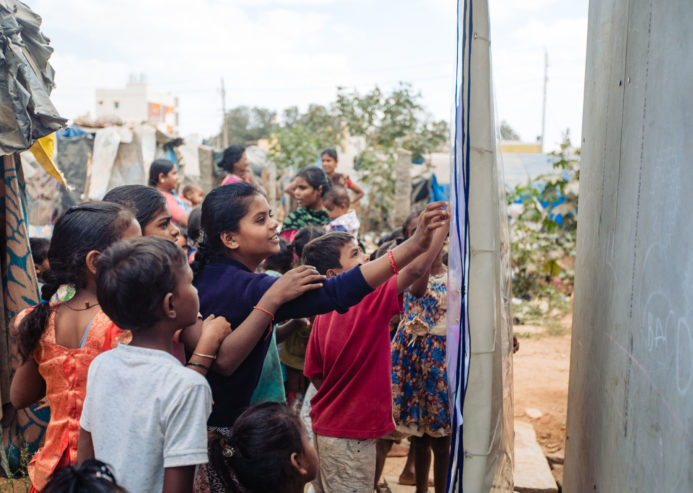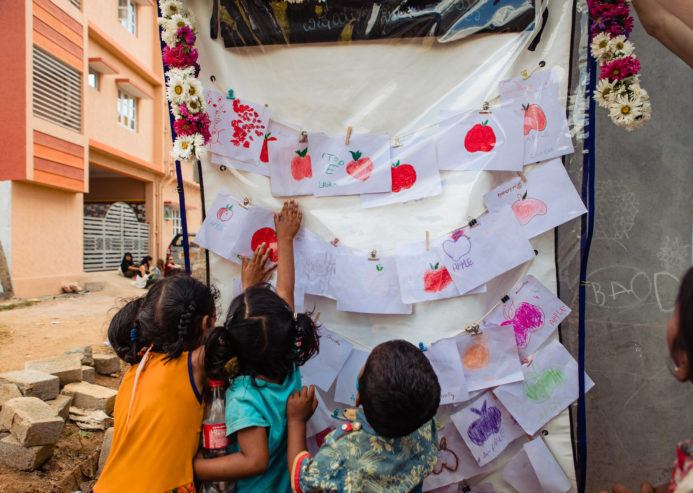Roll'up
Improving learning conditions by enhancing student's self-esteem
”
Patricia CavestanyEPFL
”
Romain TalouEPFL+ECAL Lab
”
Iscia VosEPFL
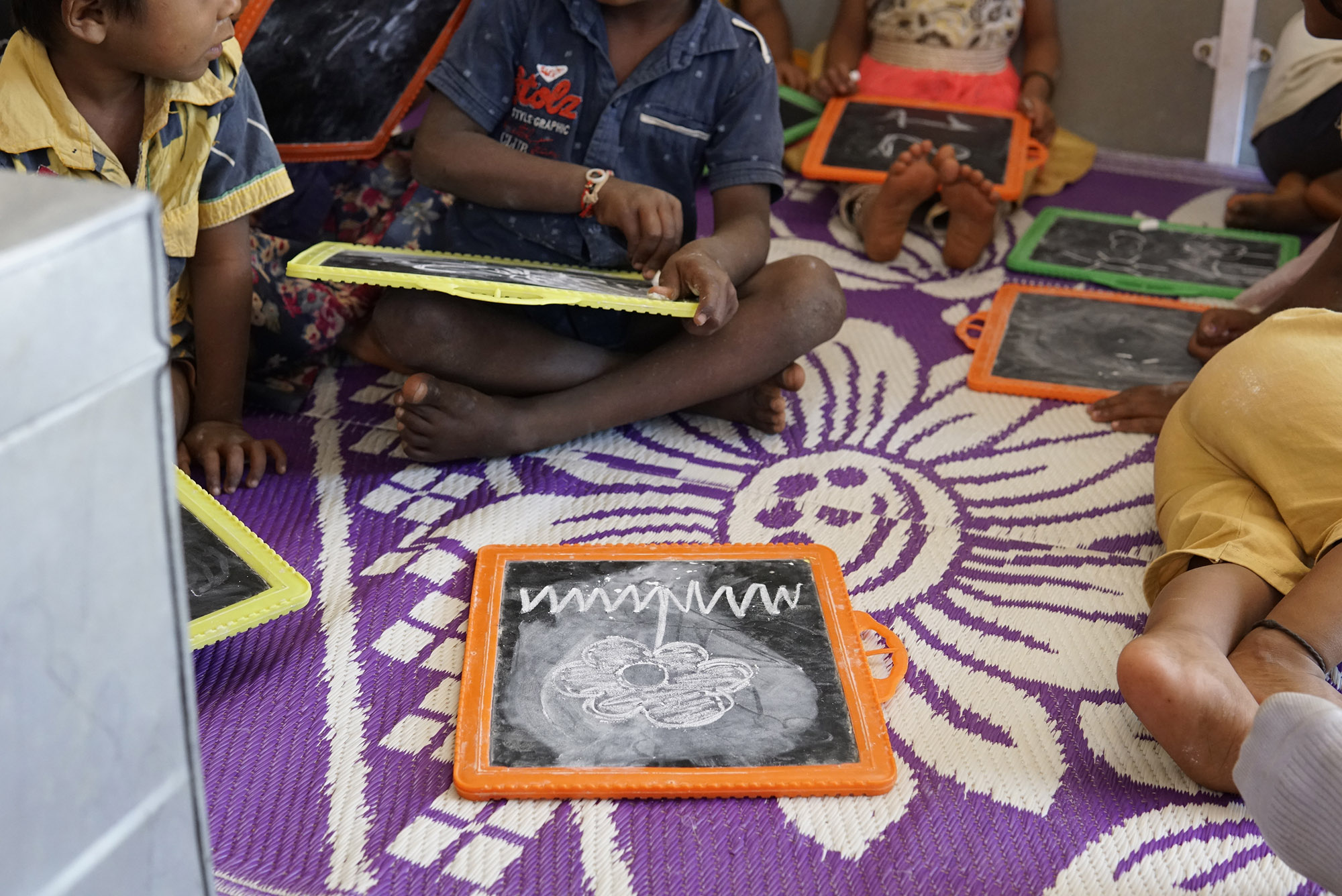
How might we improve school children learning comfort?
The Bridge schools are established for migrant workers children in the labor colonies. With a highly variable number of students (up to 60) of all ages in a one-room structure, space, time, and resources are often in short supply. Creating the proper learning conditions is a daily challenge for the teacher.
Iscia, Patricia and Romain were asked to observe the bridge school ecosystem in order to propose a solution that could improve the overall learning comfort of the school children. To uncover the school's needs, they have spent time observing the daily school's routine and discussing with the different stakeholders (students, teachers, parents, community members, social workers).
Re-contextualizing the notion of comfort
Thanks to the initial field research, the team has identified several inspiring insights. From a logistic point of view, the teachers must deal with very few options to present their lectures. From a community perspective, the parents don't really know and understand the school's role and activities. All these levels eventually impact children's focus and motivation. Therefore the team has decided to recontextualize the 'comfort' notion to embrace the context's priorities.
2. Solution Definition


Imagining a tool
for teachers
The team has proposed to develop a mobile, modular and washable display panel that could be used to present different types of student projects in different settings. The underlying idea is to help students to increase their self-esteem, as well as their parents’ acceptance of the school and teacher, which in turn would create an impact on the community’s perception of education.
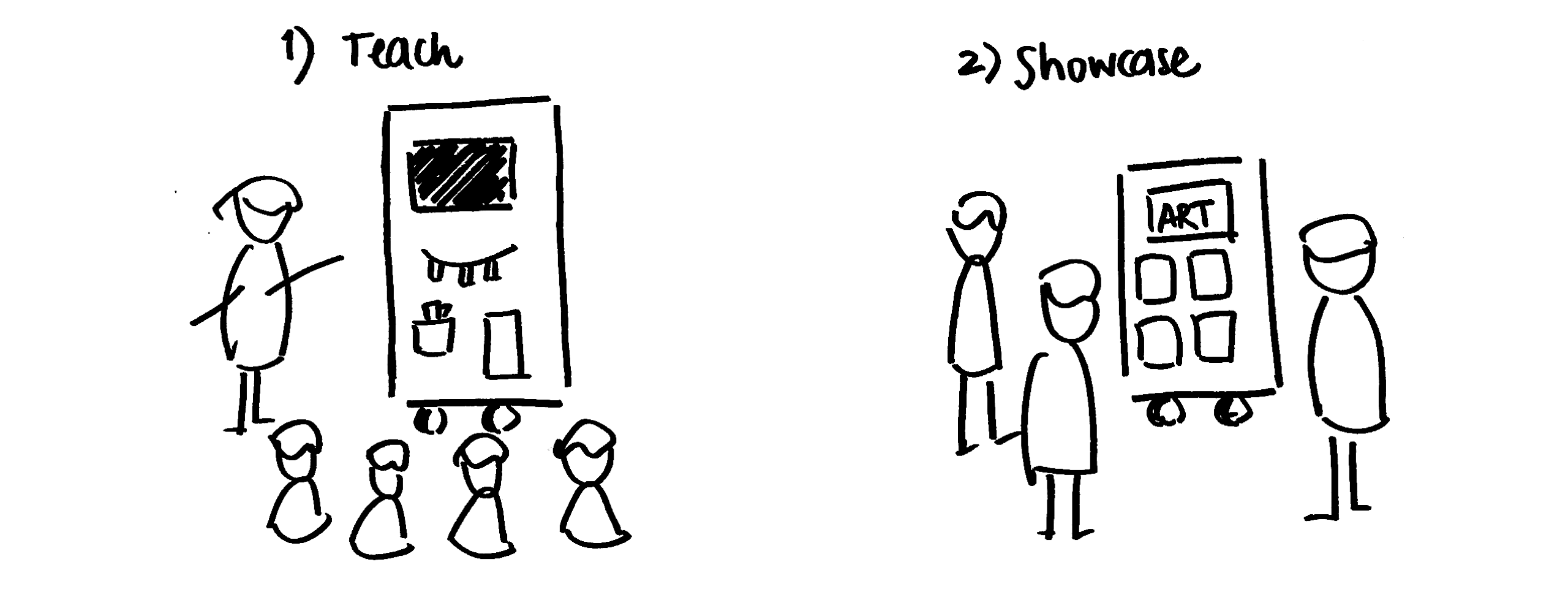
3. Prototype Validation
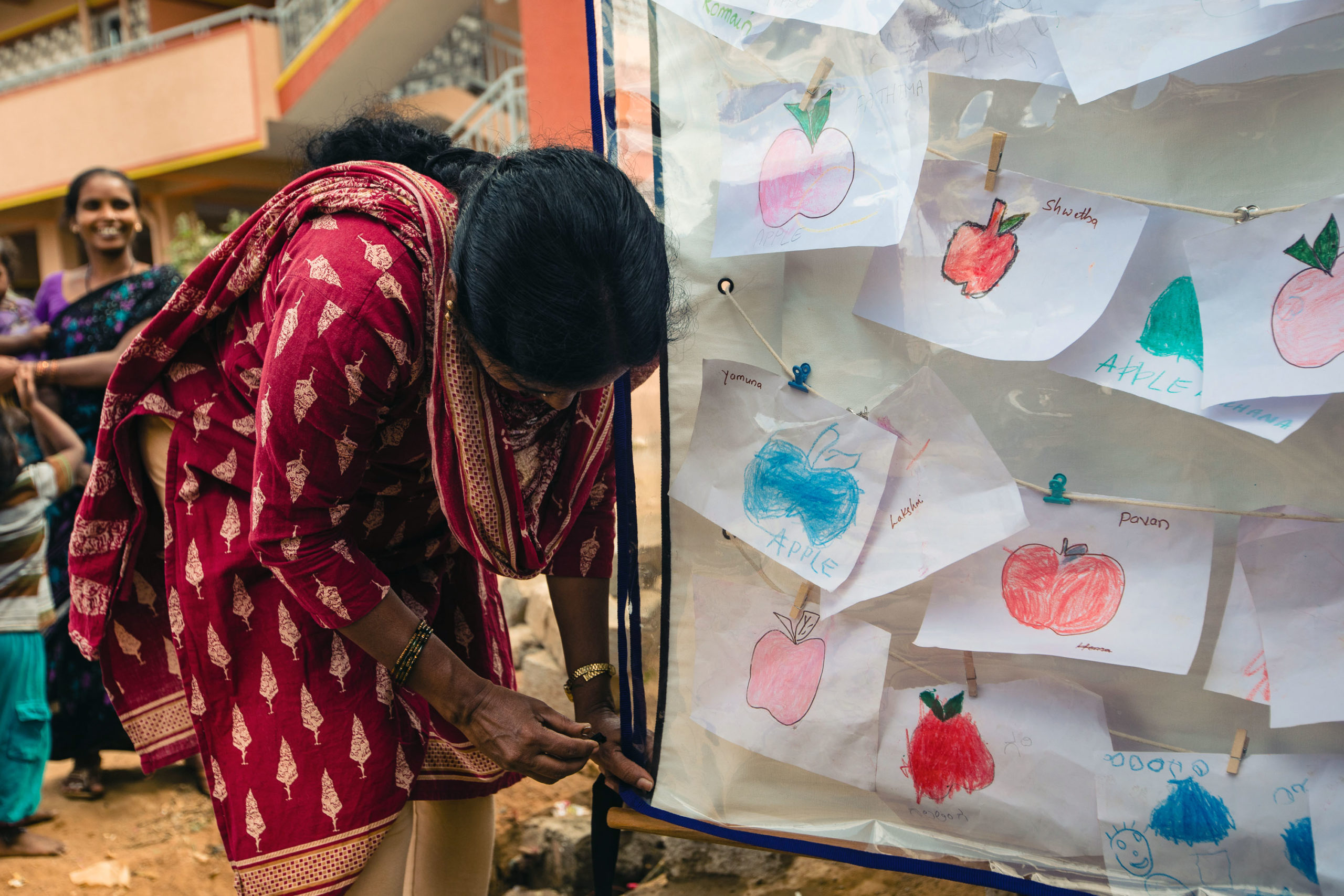
Testing the adoption
Working with local craftsmen, the team has created 3 display panels, ready to be used in real conditions. The project has been tested in two different bridge schools with the same protocol: proposing the display within a pedagogical activity concept, and not as a simple tool (the team has observed that tools adoption rate is lower in this context). The impact of the project on the community will be tracked in the upcoming months by local partners.

